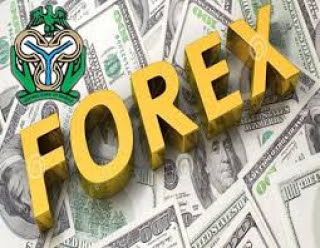The Naira depreciated again early Thursday at the parallel market, trading at N730/$1 which represented 0.69% depreciation compared to the N725/$1 it traded the preceding day.
According to information obtained from black market traders, some confirmed that they sold at N735/$1 having bought at the exchange rate of N730/$1 as dollar scarcity continues to weaken the value of the local currency in the market.
Similarly, at the peer-to-peer (P2P) FX cryptocurrency exchange, the Naira fell to N735/$1 against the US dollar on Thursday from N733.4/$1 it traded on Wednesday.
Some the traders spoken with by our correspondent attributed the sliding trend in the Naira exchange rate to sustained scarcity of the US dollar and other foreign currencies even as demand for dollar is increasing in the wake of political campaigns for the 2023 general elections.
Similarly, the traders linked the depreciation of the Naira partly to the latest jacking up on Tuesday by the apex bank of the Monetary Policy Rate (MPR), the benchmark lending rate, to 15.5%, representing 150 basis points increase from the 14% in July.
At the official Investors and Exporters (I&E) window on Wednesday, the local currency closed at N436.37/$1, representing a marginal depreciation of 0.01% as against N436.33/$1 it traded the preceding day.
According to data from the monetary authorities, a total of $119.49 million was traded at the official market on Wednesday, which is 20.17% higher than the $99.43 million that exchanged hands the previous day.
The Central Bank of Nigeria (CBN) has been supplying dollars to FX traders at the official window and until recently, the Bureau De Change (BDC) traders in the past years to achieve some stability in the Naira exchange rate.
Today marked exactly 14 months since the apex bank discontinued the sale of forex to Bureau De Change operators following speculations that some of them were engaging in round-tripping of the dollars being supplied them to meet foreign exchange needs of customers.
Despite the policy measure, the Naira has not galvanized in value as it had been trading at over N700/$1 over the past six weeks in the parallel market as against the about N515/$1 it was trading before the withdrawal of forex supply by the apex bank to the BDC operators.
Meanwhile, Nigeria’s external reserve dropped to $38.39 billion on Monday, representing a dip of 0.2% from $38.46 billion recorded last Friday.
According to data sourced from the apex bank on its interventions in the FX market indicated that it injected $3.36 billion into the market in December 2021 and January this year as part of its efforts to stabilize the national currency’s exchange rate.
Many financial and development experts have linked the sustained interventions of the CBN in the FX market to the nation’s low foreign reserve, which has been oscillating between $38 billion and $41 billion for several months now.
Also, many analysts also attributed the worrisome development to other factors, including the changing pattern of foreign trade especially as it relates to the global supply chain in recent months, institutional changes in the economy and structural shifts in production, amongst others.






